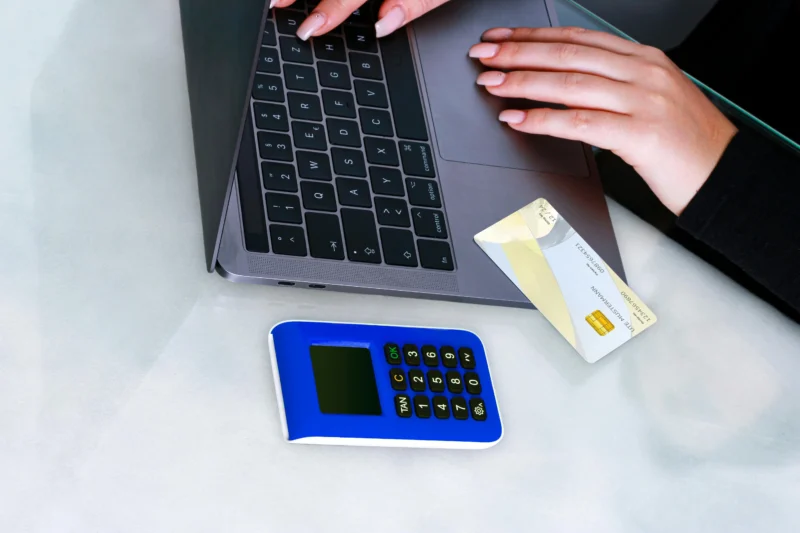When do I have to pay my rent?
Paying rent is a key obligation for all tenants. But between the different payment methods, legal deadlines, abusive practices and solutions in the event of difficulties, it can sometimes be difficult to find one's way around. Here's a practical, comprehensive guide to the essential rules governing rent payment in France.

How do I pay my rent?
Tenants can choose from several payment methods. However, they must comply with the terms and conditions set out in the lease. The legal options are as follows:
- Bank transfer: practical and secure, with a direct record of payment.
- Cheque: accepted by many owners, but used less frequently than in the past.
- Cash: authorized up to a limit of €1,000 (€2,000 for non-French tax residents).
- Direct debit: cannot be imposed by the landlord. It must be expressly accepted by the tenant.
The method of payment can be stipulated in the rental contract as a compromise between the two parties. In the case of UXCO Student residences, we prefer bank transfers for reasons of traceability and security.
When do I have to pay the rent?
The time of payment depends on the type of due date stipulated in the rental contract. There are two possible scenarios:
Payment due: at the beginning of the month
Rent is paid at the beginning of the period, usually on the 1st of the month. Example: April rent is paid on April 1.
Advantages for the lessor :
- Immediate verification of tenant creditworthiness.
- Better cash flow management.
- Reduces disputes on departure (e.g. security deposit).
In our case, rent must be paid by the 6th of the month. Once payment has been made, you will receive your rent receipt.
Payment in arrears: at the end of the month
Rent is paid at the end of the period, after occupancy. Example: April rent is paid on April 30 or by May 5 at the latest.
This method is less common for residential property. It is sometimes used to adapt to tenants’ salary payment schedules.
Monthly or quarterly payment?
By default, rent is paid monthly. However, some landlords offer quarterly payments. This is not illegal, but the tenant can request a return to monthly payment at any time, by registered letter with acknowledgement of receipt. This request cannot be refused.
This arrangement is often requested by landlords who wish to facilitate the management of their rental business. It guarantees timely payment of rent, and provides insurance against unpaid rent.
Is it possible to change the rent payment date?
Yes, you can change the date on which you pay your rent. However, there are a few conditions to bear in mind.
The payment date is contractually fixed in the lease between the tenant and the landlord. However, this date may no longer be convenient for the tenant. This may be the case if the payment date no longer coincides with the tenant’s salary. In this case, the tenant can request a change of date. This request must be :
- a written agreement between the parties;
- an amendment to the lease contract to be enforceable.
The owner is not obliged to accept, but an amicable dialogue is often fruitful. It’s also preferable to avoid regular late payments. It’s important to remember that a good relationship between the owner and the tenant is very important in the long term.
Is every month started due?
No, the landlord cannot require these tenants to pay the full amount of the rent if they have not occupied the property for a full month. The clause “any month begun is due” is illegal and abusive, whether for an empty or furnished rental.
At the beginning or end of the lease, the rent must be calculated on a prorata temporis basis, i.e. only for the days actually occupied.
For example, if you move in on March 20, you will only pay the rent for the period from March 20 to March 31, in addition to the security deposit.
What are the consequences of rent arrears?
Rent is considered overdue from the day after the date stipulated in the lease. In practice, a delay of up to the 10th of the month is generally tolerated.
What the owner is not allowed to do:
- Apply penalties or late fees, even if a clause in the contract so provides.
- Refuse to provide a rent receipt once payment has been made.
What you can do:
- Follow up with the tenant (phone call or letter).
- Send a registered letter or a call for rent.
- Put the tenant on notice to pay.
- As a last resort, call in a court commissioner to issue a summons to pay. In this case, the tenant has two months to pay.
If arrears persist, eviction proceedings may be initiated (outside the winter truce period). The occupant will have to vacate the premises. To find out the exact procedure for UXCO Student residences, visit our FAQ on rent.
You should also know that the law allows the landlord to demand unpaid rent despite eviction if the security deposit does not cover it. This can be done through unpaid rent insurance or a judge. This procedure allows the rental debt to be reimbursed through a direct deduction from wages.
What to do if you have difficulty paying the rent?
When faced with unforeseen circumstances or a drop in income, it’s essential to react quickly.
Steps to follow :
- Inform your landlord immediately to try to reach an amicable settlement.
- Propose a payment installment plan.
- Formalize the agreement in writing to avoid any ambiguity.
- Check eligibility for assistance:
- APL, ALF or ALS (CAF).
- Fonds de Solidarité pour le Logement (FSL) in your département.
- Action Logement (private-sector tenants).
- Contact a social worker or the departmental conciliation commission.
In the event of legal proceedings :
- You can ask the judge for a deferment of payment.
- If you are threatened with eviction, you can apply for legal aid and be assisted by a conciliator.
FAQ
Rent is due from the day you move in, even if it’s during the month.
No, it is calculated on a pro rata basis if you move in mid-month.
Rent is generally payable monthly, in arrears or in arrears depending on the lease, often on the 1st of the month.
This is the amount due for the period from the date of entry to the end of the first month, often accompanied by the security deposit.
Payment is made by bank transfer, direct debit, cheque or sometimes cash within the authorized limit. The method of payment must be specified in the lease.
Penalties may apply, and the lessor may initiate collection or even termination proceedings in the event of prolonged non-payment.




